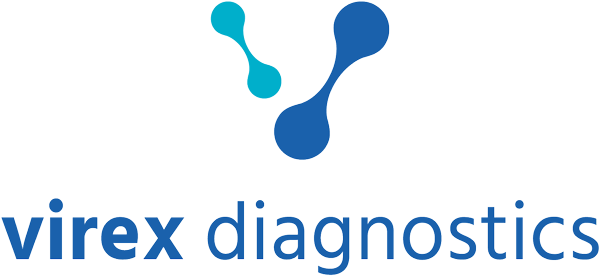- Clinically meaningful improvement in quality of life with single injection of resiniferatoxin
- Improvement in pain intensity by 20%, as measured by numerical rating scale, with most patients experiencing increased activity levels
- Resiniferatoxin appears well-tolerated with no opioid-like toxicities
San Diego, CA – April 4, 2014 – Sorrento Therapeutics, Inc. (NASDAQ: SRNE; Sorrento) a late-stage clinical oncology company developing new treatments for cancer and its associated pain, today announced that investigators from the National Institutes of Health (NIH) presented data highlighting results from the first two dosing cohorts of the Phase I/II trial of resiniferatoxin (RTX) for the treatment of intractable cancer pain. The data were presented at the 39th Annual Regional Anesthesia and Acute Pain Meeting, organized by the American Society of Regional Anesthesia and Pain Medicine (ASRA), in Chicago on April 3, 2014.
Data from six patients with advanced cancer and severe refractory pain, who received either 13 or 26 mcg injection of RTX into the intrathecal space, showed a clinically meaningful improvement in quality of life following the single injection. The overall average improvement across the seven Brief Pain Index pain interference items was 1.6 at week two, and patients reported a comparable 6.5 point improvement in the overall score of the Functional Assessment of Cancer Therapy-General scale (FACT-G). Patients achieved, on average, a 20 percent reduction in their pain intensity numerical rating scale (NRS) score at 2 weeks (range 3.6% – 54.0%). Of note, most patients were able to increase their activity level and one-third of patients who were bed or wheelchair bound due to pain were able to resume ambulation soon after the injection. The drug was well tolerated with no unexpected side effects. One additional cohort with an increased dose is planned in order to determine the optimal dose level for further development. Sorrento plans to rapidly launch a randomized controlled confirmatory multi-center trial.
“The data from this first set of patients are consistent with the mechanism of action seen in preclinical studies,” said primary investigator, John Heiss, M.D. Branch Chair and Neurosurgery Residency Program Director Surgical Neurology Branch, NINDS, NIH. “Resiniferatoxin has the potential to be a significant new option for this severe unmet medical need.”
Henry Ji, Ph.D., President and CEO of Sorrento, added, “Although early, we are encouraged with the clinical results thus far as well as the potential value proposition for patients. We have started taking the necessary steps to rapidly advance this orphan drug product to registration.”
RTX is a non-opioid-based pain treatment with a unique mechanism of action, as it selectively binds to the TRPV-1 receptor and creates an ultra-potent agonist signal. This leads to calcium influx induced apoptosis of TRPV-1 nerve cells, resulting in a selective ablation. A single intraspinal injection of RTX is expected to permanently block the transmission of pain signals without effecting normal sensation, motor control, or impairment of mental or physical faculties often seen with opioid treatment.
The ongoing study (clinicaltrials.gov identifier: NCT00804154) is an investigator-sponsored clinical trial at the NIH, under a company sponsored Collaborative Research and Development Agreement, designed to evaluate the safety of RTX for the treatment of intractable cancer pain.
About Sorrento Therapeutics, Inc.
Sorrento is an oncology company developing new treatments for cancer and its associated pain. Sorrento’s most advanced asset Cynviloq, the next-generation paclitaxel, commenced its registrational trial on March 31, 2014 and is being developed under the abbreviated 505(b)(2) regulatory pathway. Sorrento is also developing RTX, a non-opioid TRPV1 agonist currently in a Phase 1/2 study at the National Institutes of Health to treat terminal cancer patients suffering from intractable pain. The Company has made significant advances in developing human monoclonal antibodies, complemented by a comprehensive and fully integrated ADC platform that includes proprietary conjugation chemistries, linkers, and toxic payloads. Sorrento’s strategy is to enable a multi-pronged approach to combating cancer with small molecules, therapeutic antibodies, and ADCs.
More information is available at www.sorrentotherapeutics.com.
Forward-Looking Statements
This press release contains forward-looking statements under the safe harbor provisions of Section 21E of the Private Securities Litigation Reform Act of 1995 and subject to risks and uncertainties that could cause actual results to differ materially from those projected. Forward-looking statements include statements about the potential for the successful advancement of our clinical-stage products; the retention of key personnel; and other matters that are described in Sorrento’s Annual Report on Form 10-K for the year ended December 31, 2013, and subsequent Quarterly Reports on Form 10-Q filed with the Securities and Exchange Commission, including the risk factors set forth in such filing. Investors are cautioned not to place undue reliance on these forward-looking statements, which speak only as of the date of this release and we undertake no obligation to update any forward-looking statement in this press release except as required by law.
Contact(s):
Mr. Amar Singh
EVP and Chief Business Officer
Sorrento Therapeutics
asingh@sorrentotherapeutics.com
T: + 1 (858) 210-3719
Mr. Ian Stone
Account Director
Canale Communications
ian@canalecomm.com
T: + 1 (619) 849-5388

